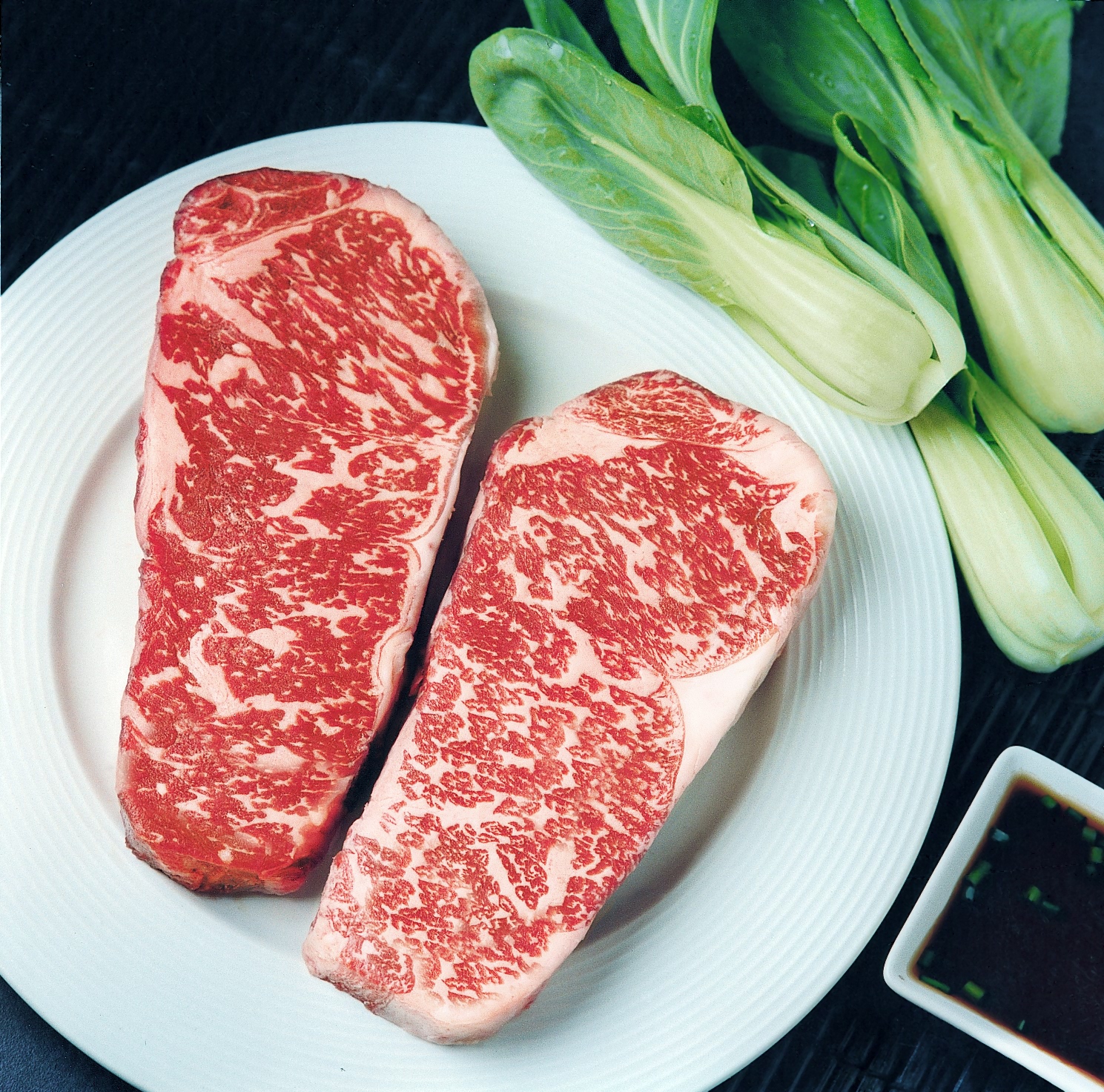#beef #Kobe #Wagyu
“Every Kobe steak is Wagyu, but not all Wagyu beef is Kobe”— Paul Ebeling
Kobe is a variety of Wagyu. Wagyu, loosely translated, means “Japanese cattle”. So “Wagyu” refers to any cattle that is bred in Japan or the Japanese-style. Kobe beef is comprised of a very particular strain of Wagyu called Tajima-Gyu that is raised to strict standards in the prefecture of Hyogo. Hyogo’s capital city is Kobe, thus the name.
The Big Q: What sets Wagyu apart from other kinds of cattle? And what makes Kobe beef so special that it regularly commands the highest per-pound prices on the market?
The Big A: The difference comes down to selection, care, feeding, and the obsessive, extraordinary efforts of Wagyu breeders.
The roots of Wagyu’s superiority can be traced to the late 1800’s. During the 1880’s, several breeds of European cattle were introduced to Japan and crossbred with native Japanese breeds. The 4 strains of cattle that resulted dominate the Japanese beef trade to this day.
These 4 varieties are the only true strains of Wagyu cattle:
- Japanese Black: Originally raised as work cattle, Japanese Black beef is prized for its intensive marbling.
- Japanese Brown: A leaner, healthier breed of cattle, known for its light, mild taste.
- Japanese Shorthorn: While also lean, Japanese Shorthorn is rich in inosinic and glutamic acid, highly prized for the savory flavor they give beef.
- Japanese Polled: Similar to Brown and Shorthorn in leanness, Japanese Polled is known for a gamier texture and rich, meaty taste.
Over 90% of all Wagyu are Japanese Black strains, so when someone says “Wagyu,” they are usually referring to Japanese Black cattle.
In developing Wagyu cattle, breeders took extraordinary care. Special feeds were created out of forage, grasses, and rice straw, then supplemented with corn, barley, soybean, wheat bran, and in some cases, even beer or sake. It is sometimes said that herders would massage their cattle to alleviate muscle tension caused by cramped spaces.
Marbling: The Wagyu Difference
As a result of these breeding methods combined with longer periods for fattening, Wagyu cattle have an unparalleled level of marbling.
Wagyu marbling is also better tasting. Wagyu fat melts at a lower temperature than any other cattle’s, resulting in a rich, buttery flavor unseen in other strains of beef. This fat is also unsaturated and high in Omega-3 and Omega-6 fatty acids, meaning not only is Wagyu marbling more delicious, it’s also more healthy. Genuine Wagyu beef can be difficult to find in the U.S. Check out these beautifully marbled Kobe-style Wagyu steaks you can get shipped to your door.
There are several strains of Japanese Black cattle, including the highly prized Tajima-Gyu strain. The most sought after regional varieties of Wagyu all come from Tajima-Gyu cattle, including Matsusaka, Omi, and Kobe beef.
Kobe beef is the crème de la crème – it is the most sought after and most expensive beef in the world, with single portions often selling for more than $200.
Because Kobe beef exemplifies everything that makes Wagyu better. Kobe beef is considered the most abundantly marbled in the world, brimming with the creamiest, most decadent, most flavorful streaks of fat a steak can have.
A major factor in the quality of Kobe steaks is the uncompromising regulations the region uses for its cattle. To be labelled Kobe, cattle must meet the following 7 standards upon slaughter:
- Bullock (steer) or virgin cow.
- Tajima-Gyu born within Hyogo Prefecture.
- Fed on a farm within Hyogo Prefecture.
- Meat processed within Hyogo Prefecture.
- Marbling rating (BMS) of 6 or higher on a 12 point scale.
- Meat quality rating of 4 or higher on a 5 point scale.
- An overall weight not exceeding 470 kg.
Because of these stringent standards, only between 3,000 and 4,000 head of cattle qualify as authentic Kobe cattle each year.
There’s also a limited number of farms that raise these Japanese cattle – somewhere between 200 and 300 of them – compared to the thousands that raise regular, non-Japanese Wagyu cattle.
The meticulous care of these cattle easily bump up the price. Not only are they fed a strict, Top-of-the-line diet, these cattle are bred for greatness and taken excellent care of.
Out of all the cattle raised on Wagyu farms, the ones that can pass as certified Kobe beef are fewer. And, since the majority of these cattle are only shipped within the country after slaughter, the prices can soar for those exclusive cuts that export to other countries.
Eat healthy, Be Healthy, Live lively









